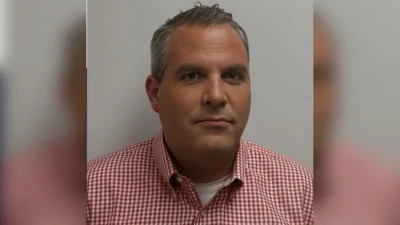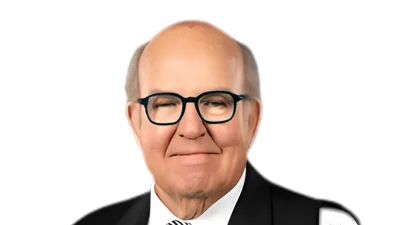Chris Ingstad of Iowans for Tax Relief. | Iowans for Tax Relief
Chris Ingstad of Iowans for Tax Relief. | Iowans for Tax Relief
As the Iowa Legislature concluded it work for the interrupted 2020 session, Chris Ingstad, president of Iowans for Tax Relief, is concerned that the elected officials aren’t making the right choices.
The legislature met for the last time June 14, wrapping up a $7.8 billion budget for fiscal year 2021. That’s a $26.6 million increase from the current budget.
Ingstad argues that Iowans are being pushed to a breaking point by the state's Iowa’s traditionally high tax rates. During the COVID-19 pandemic, some businesses closed while others were reduced to serving online customers or just providing curb service. Thousands of people were idled or saw their hours and pay reduced.
“Iowa will be forced to deal with reduced revenues while at the same time developing policies to help enable, or at least not inhibit, an economic recovery,” he told Hawkeye Reporter. “There is one thing they have to refrain from doing: turning to the taxpayer to fill any potential budget gaps. Iowa families and businesses have already sacrificed much due to the virus and they shouldn’t have to shoulder more of the burden in a way they can’t afford.”
Ingstad said lawmakers needed to use a cautious budgeting approach because it will be difficult to accurately predict incoming state revenue.”
In 2018 the legislature passed a tax bill that aimed to reduce the tax rate, promote sales tax modernization and conform with the federal tax code. Iowans for Tax Relief said that was a positive step, but there is a long way to go to make the state more competitive.
“Under the initial individual income tax cut that reduced the top marginal rate to 8.53 percent, Iowa still has a higher rate than every border state but Minnesota,” according to the Iowans for Tax Relief website. “Iowa’s corporate income tax rate is 12 percent, which is also higher than every state that borders Iowa. With many cities located along Iowa’s borders, this difference matters.”
Ingstad said with the economic downturn caused by COVID-19, it’s a difficult time for all Iowans.
“I’m sure the public doesn’t want to pay more in taxes right now,” he said. “Legislators have to hold the line with this budget because nobody likes having to make painful midyear adjustments if we spend beyond our means. Iowans are forced to make tough financial decisions every day, and our state leaders will have to do the same as they build next year’s budget.
“Typically, when a private business faces financial challenges, they consider measures like hiring freezes, suspending scheduled compensation increases, adjusting retirement contributions, or offering early retirement options. This wouldn’t be unique to Iowa as Gov. [Chet] Culver, and Gov. [Tom] Vilsack before him, took similar actions in response to the financial crisis and the 9/11 terrorist attacks, respectively.”
He offered one suggestion to keep costs down.
“The state has to consider forgoing the hiring of new government workers,” Ingstad said. “By not replacing departing employees unless absolutely necessary, Iowa could hold onto critically needed dollars.”
He said the Hawkeye State has provided ways to monitor what is happening in Des Moines.
“In addition to debates on the floor or both chambers being streamed as usual, all subcommittee and committee activity is being streamed on the legislature’s website as well,” Ingstad said. “Sending an e-mail to a legislator is an easy way to make sure constituent voices are heard.”




 Alerts Sign-up
Alerts Sign-up